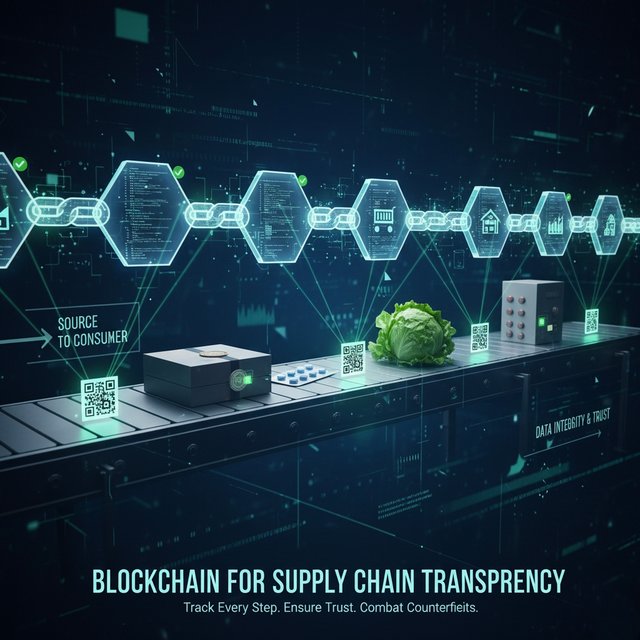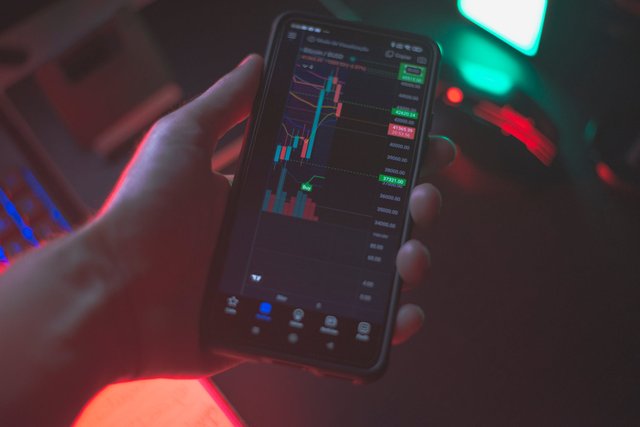Blockchain and supply chain
Assalamu Alaikum
A supply chain is a complex network of steps from the production of a product or service to its delivery to the consumer. Today’s global supply chains are vast and complex. This complexity often creates a lack of transparency about the source, quality, and overall integrity of the product. Blockchain technology can address these issues, making supply chains more transparent, secure, and reliable.
There are some fundamental challenges in traditional supply chain systems that harm both consumers and businesses.
Opacity of Product Source : Consumers often do not know where the product they are buying comes from, under what conditions it was produced, or whether it was ethically sourced. This opacity is particularly concerning for food or luxury goods.
Risk of Counterfeit and Counterfeit Products : Counterfeit products, especially luxury goods and life-saving medicines, are a serious problem in the marketplace. Conventional tracking systems can be easily tampered with.
Information inefficiency and fragmentation : Information is exchanged between different parties in the supply chain (manufacturers, suppliers, distributors) in isolation, which is slow and prone to errors. In an emergency, it becomes difficult to quickly identify the source.
Lack of quality assurance : Important information such as temperature or handling to maintain product quality is sometimes lost or recorded incorrectly.
Tracking from production to consumer : Using blockchain, each product is given a unique digital token or identity (such as a QR code or RFID tag). Data related to this token is recorded on the blockchain at each step of the product's life cycle (raw material procurement, production, packaging, transportation, warehousing).
Automation through smart contracts : Smart contracts can be used to automate the execution of supply chain conditions. For example, if the temperature of a product rises above a certain level during transportation, the smart contract can automatically alert the supplier or suspend the payment process.
Data integrity : The encryption and decentralized nature of blockchain ensures that once the data is recorded, no one can change it. This ensures the integrity or reliability of the information.
Time saving and efficiency : Blockchain systems make the process of exchanging information faster and more efficient by reducing paperwork and eliminating manual data entry.
Food Safety : IBM's Food Trust Network. If contamination is detected in a food, it is possible to identify the source, supplier and other involved parties of that food within seconds using blockchain. This allows the contaminated food to be quickly removed from the market, which would have taken days in the traditional method. This ensures food safety for both consumers and retailers.
Luxury goods and diamond industry : Blockchain-based digital certificates are added to products such as luxury watches, jewelry or clothing. This assures the buyer that the product is genuine and its history of origin (such as source, manufacturer and repair) is transparent. It also helps identify “Conflict Diamonds”.
Pharmaceuticals : Blockchain is used in the pharmaceutical supply chain to track each package. Records of when, where and through which channels the medicine is being supplied are secured on the blockchain. This makes it difficult for counterfeit or expired medicines to enter the market and protects public health.
Blockchain is not only improving the supply chain technologically, but also strengthening the relationship of trust between both consumers and producers by creating an ethical and transparent market system. Today's discussion concludes here. I hope you've found it interesting. Please share your thoughts on today's topic. Prayers for everyone. May everyone be well. Amen.


Twitter
https://x.com/BokhtiarMr90788/status/1977734594959962462?t=qLKA3T-DpGPHc4NuPm0A4Q&s=19
https://x.com/PussFi_FNDN/status/1977649589747687706?t=qLKA3T-DpGPHc4NuPm0A4Q&s=19
https://x.com/BokhtiarMr90788/status/1977735376161673266?t=r51ClrjhFSKNKjnHmDSsGA&s=19
https://coinmarketcap.com/community/post/369512690
It is a great post of Blockchain and supply chain.